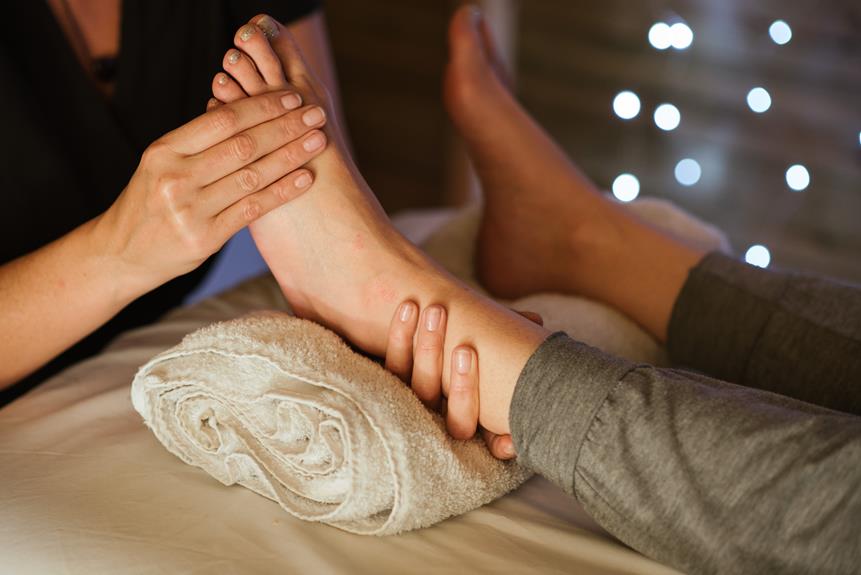Why Women Experience Vaginal Dryness, and How to Find Relief

In the realm of women’s health, a delicate matter often goes unspoken – vaginal dryness. While it may seem like a taboo subject, this common issue affects many women and can lead to discomfort and distress.
Understanding the causes and finding relief is crucial for those seeking to restore comfort and intimacy. This article aims to shed light on the topic, offering practical solutions and guidance to empower women on their journey towards vaginal moisture and overall well-being.
Key Takeaways
- Hormonal changes, medication side effects, stress, and insufficient arousal can all contribute to vaginal dryness.
- Common symptoms of vaginal dryness include itching, burning, and discomfort during intercourse.
- Treatment options for vaginal dryness include hormonal treatments, non-hormonal options like lubricants and moisturizers, and alternative therapies.
- Prevention and lifestyle changes, such as using water-based lubricants, regular sexual activity, and avoiding irritants, can help alleviate vaginal dryness.
Understanding the Causes of Vaginal Dryness
The current discussion topic revolves around understanding the various factors that contribute to vaginal dryness in women.
Vaginal dryness can be caused by a variety of factors, including hormonal changes, certain medications, stress, and lack of arousal.
Hormonal changes, such as those that occur during menopause, can lead to decreased estrogen levels, resulting in reduced vaginal lubrication.
Additionally, certain medications, such as antihistamines and antidepressants, can have drying effects on the body, including the vaginal area.
Stress is another common cause of vaginal dryness, as it can disrupt hormone balance and decrease blood flow to the pelvic region.
Lastly, a lack of arousal or insufficient foreplay can also contribute to vaginal dryness.
To combat vaginal dryness, it is important to prioritize hydration by drinking plenty of water and using lubricants during sexual activity.
Recognizing the Symptoms of Vaginal Dryness
Vaginal dryness is a common condition that affects many women, especially during menopause or after childbirth. Some common symptoms of vaginal dryness include itching, burning, and discomfort during intercourse.
Recognizing these symptoms is crucial in order to seek appropriate treatment options and take preventive measures to alleviate the discomfort and improve overall vaginal health.
Causes of Vaginal Dryness
Amidst discussions on causes of vaginal dryness, recognizing the symptoms becomes crucial for timely intervention and relief. Vaginal dryness is a common condition that can affect women of all ages and can be caused by various factors.
Hormonal changes, such as those that occur during menopause or breastfeeding, can lead to decreased estrogen levels, resulting in vaginal dryness. Other causes include certain medications, stress, anxiety, and certain medical conditions.
It is important for women to understand the potential causes of vaginal dryness in order to take preventive measures and find relief. Prevention methods can include using water-based lubricants during sexual activity, staying hydrated, and avoiding harsh soaps or douches.
Treatment Options Available
During the ongoing discussion on treatment options available for vaginal dryness, it is important to recognize the symptoms in order to provide timely and effective relief for affected women. Vaginal dryness can cause discomfort, itching, and pain during intercourse, leading to a decrease in sexual satisfaction and overall quality of life.
When considering treatment options, it is crucial to understand the difference between hormonal and non-hormonal options. Hormonal treatments, such as estrogen therapy, can help restore moisture and elasticity to the vaginal tissues. Non-hormonal options, on the other hand, include over-the-counter lubricants and moisturizers, which provide temporary relief.
In addition to these conventional treatments, alternative therapies like herbal supplements and pelvic exercises have shown promise in relieving vaginal dryness. It is important for healthcare providers to discuss these various options with their patients and tailor the treatment plan to meet the individual needs and preferences of each woman.
Preventing Vaginal Dryness
In the current discussion on preventing vaginal dryness, healthcare providers should emphasize the importance of recognizing the symptoms and implementing proactive measures to maintain vaginal moisture and overall sexual well-being.
Vaginal dryness can occur during menopause due to hormonal changes, and it can lead to discomfort, pain during intercourse, and decreased sexual satisfaction.
To prevent dryness, women should be encouraged to use lubricants specifically designed for vaginal dryness. These lubricants can provide temporary relief by reducing friction and enhancing moisture.
Additionally, healthcare providers should educate women about the importance of regular sexual activity and arousal, as these can help stimulate natural lubrication.
Women should also be advised to avoid harsh soaps, douches, and other irritants that can further dry out the vaginal area.
Lifestyle Changes to Alleviate Vaginal Dryness
Several lifestyle changes can be implemented to alleviate vaginal dryness and improve overall comfort. Here are four effective strategies to consider:
- Use lubricants: Applying water-based lubricants can help reduce friction during intercourse and provide temporary relief from vaginal dryness.
- Engage in regular exercise: Regular physical activity promotes blood circulation, which can improve vaginal lubrication and overall sexual health.
- Stay hydrated: Drinking an adequate amount of water throughout the day helps maintain proper hydration levels and may prevent vaginal dryness.
- Make dietary changes: Consuming foods rich in omega-3 fatty acids, such as fatty fish and flaxseeds, can help maintain healthy vaginal tissues. Additionally, incorporating foods high in phytoestrogens, such as soy products and legumes, may help alleviate symptoms of vaginal dryness.
Over-the-Counter Remedies for Vaginal Dryness
While there are various over-the-counter remedies available, it is important for individuals experiencing vaginal dryness to consult with a healthcare professional for personalized recommendations and guidance. Over-the-counter lubricants can provide temporary relief from vaginal dryness by moisturizing the vaginal tissues and reducing friction during sexual activity. However, it is essential to choose a lubricant that is free from irritants and allergens, and compatible with condoms and sex toys. Natural remedies for vaginal dryness, such as coconut oil or aloe vera gel, may also offer relief due to their moisturizing properties. However, it is crucial to note that these remedies may not be suitable for everyone and could potentially cause allergic reactions. Consulting with a healthcare professional can help determine the underlying cause of vaginal dryness and provide appropriate treatment options.
| Over-the-Counter Lubricants | Natural Remedies for Vaginal Dryness |
|---|---|
| Water-based lubricants | Coconut oil |
| Silicone-based lubricants | Aloe vera gel |
| Oil-based lubricants | Olive oil |
| Hybrid lubricants | Vitamin E oil |
| Flavored lubricants | Evening primrose oil |
Prescription Treatments for Vaginal Dryness
Prescription treatments for vaginal dryness are often recommended for women who have not found relief from over-the-counter remedies. One common option is hormonal creams, which can help restore moisture and relieve discomfort.
However, non-hormonal treatments are also available for women who prefer alternative options or cannot use hormonal therapies.
It is important to be aware of potential side effects and discuss with a healthcare provider to determine the most suitable treatment approach.
Hormonal Cream Effectiveness
Numerous studies have shown the significant effectiveness of hormonal creams in alleviating symptoms of vaginal dryness. These creams work by replenishing the estrogen levels in the vaginal tissues, thus improving lubrication and reducing discomfort.
However, some women may have concerns about the long-term effects of using hormonal creams. It is important to explore alternative options and consider the potential risks associated with prolonged use.
Here are some alternative approaches to hormonal creams for managing vaginal dryness:
- Moisturizers and lubricants: These over-the-counter products provide immediate relief by moisturizing the vaginal tissues and reducing friction during intercourse.
- Phytoestrogens: Certain foods and supplements contain plant-based compounds that mimic estrogen and may help improve vaginal dryness.
- Lifestyle changes: Staying hydrated, avoiding irritants, and practicing good genital hygiene can help alleviate symptoms.
- Hormone replacement therapy: For women experiencing severe vaginal dryness, hormone replacement therapy may be a viable option, but it should be discussed with a healthcare provider to understand the potential risks and benefits.
Non-Hormonal Treatment Options
Several effective non-hormonal treatment options, such as moisturizers, lubricants, phytoestrogens, and lifestyle changes, provide relief for women experiencing vaginal dryness.
For those seeking natural lubricants, options like coconut oil, aloe vera gel, and vitamin E oil can be effective in moisturizing the vaginal area. These natural lubricants can help reduce discomfort and improve overall vaginal health.
Herbal supplements, such as black cohosh and red clover, containing phytoestrogens may also provide relief by restoring hormonal balance.
Additionally, lifestyle changes such as staying hydrated, avoiding irritants like douches and harsh soaps, and wearing breathable underwear can help alleviate symptoms of vaginal dryness.
It is important for women experiencing vaginal dryness to consult with a healthcare professional to determine the best treatment plan for their specific needs.
Potential Side Effects
A thorough understanding of the potential side effects associated with prescription treatments for vaginal dryness is crucial for healthcare professionals when considering the best course of action for their patients. It is essential to weigh the potential risks against the benefits of these treatments to ensure the well-being of patients.
Here are four important points to consider when discussing potential side effects of prescription treatments for vaginal dryness:
- Hormonal imbalance: Some prescription treatments may disrupt the natural hormonal balance in the body, leading to various side effects.
- Allergic reactions: Patients may experience allergic reactions to certain medications, causing discomfort and further complications.
- Increased risk of infections: Prescription treatments can sometimes weaken the immune system, making patients more susceptible to infections.
- Long-term effects: The long-term effects of these treatments are not yet fully understood, highlighting the need for caution when prescribing them.
Considering these potential risks, healthcare professionals should also explore alternative therapies for managing vaginal dryness, ensuring the best possible care for their patients.
Natural Remedies to Relieve Vaginal Dryness
While there are various medical treatments available, exploring natural remedies, such as increased hydration and the use of natural lubricants, can provide relief for vaginal dryness. Vaginal dryness is a common condition that can cause discomfort and pain during intercourse, as well as itching and irritation. Incorporating herbal supplements and vaginal moisturizers into the daily routine can help to alleviate these symptoms.
| Natural Remedies for Vaginal Dryness | |
|---|---|
| Increased Hydration | Drinking plenty of water helps to keep the body hydrated, including the vaginal area. Aim for at least 8 glasses of water per day. |
| Natural Lubricants | Using natural lubricants during intercourse can help to reduce friction and increase comfort. Look for products that are free from harsh chemicals and additives. |
| Herbal Supplements | Certain herbal supplements, such as black cohosh and evening primrose oil, have been found to help balance hormone levels and improve vaginal moisture. Consult with a healthcare professional before starting any new supplements. |
Tips for Maintaining Vaginal Moisture and Comfort
To maintain vaginal moisture and comfort, it is important to regularly hydrate and incorporate gentle, natural lubricants during intimate activities. Here are some essential tips for maintaining vaginal moisture and ensuring a comfortable experience:
- Stay hydrated: Drinking plenty of water throughout the day helps to keep the body hydrated, including the vaginal tissues.
- Avoid harsh soaps and douches: Use mild, fragrance-free soaps to cleanse the vaginal area and avoid using douches, as they can disrupt the natural pH balance.
- Choose breathable underwear: Opt for cotton underwear that allows proper airflow and reduces moisture buildup.
- Use natural lubricants: When engaging in intimate activities, use natural lubricants such as aloe vera gel or coconut oil to enhance comfort and reduce friction.
By following these vaginal lubrication tips and incorporating these practices into your routine, you can maintain optimal vaginal moisture and ensure a comfortable and pleasurable experience.
Frequently Asked Questions
Can Vaginal Dryness Be a Sign of an Underlying Medical Condition?
Vaginal dryness can indeed be a sign of an underlying medical condition. It can be caused by hormonal imbalances, certain medications, and medical treatments. Treatment options include hormonal therapy, lubricants, and moisturizers.
What Are Some Common Misconceptions About Vaginal Dryness?
There are several common misconceptions about vaginal dryness, such as assuming it only affects older women or that it is solely a result of menopause. However, hormonal changes and certain medications can also contribute to this condition.
Are There Any Specific Foods or Supplements That Can Help With Vaginal Dryness?
Foods and supplements can potentially provide relief from vaginal dryness, although individual results may vary. It is important to consult with a healthcare professional to determine if specific dietary changes or supplements are appropriate, especially if there are underlying medical conditions or concerns. Stress and anxiety management techniques, along with pelvic floor exercises, can also help improve vaginal lubrication.
Can Stress or Anxiety Contribute to Vaginal Dryness?
Stress and anxiety can contribute to vaginal dryness. Effective stress management and relaxation techniques, such as deep breathing exercises and mindfulness meditation, can help alleviate symptoms and promote vaginal lubrication.
Are There Any Exercises or Techniques That Can Help Improve Vaginal Lubrication?
Exercises and mindfulness techniques can potentially improve vaginal lubrication. Engaging in regular pelvic floor exercises, such as Kegels, and practicing relaxation techniques, like deep breathing and meditation, may help increase blood flow and promote natural lubrication.








